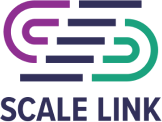Case study: Supporting the community with First Eagle Bank
Chicago area community bank searched for 3 microloans to help direct new capital to CDFIs and small businesses in their community.
The scenario
Stephane Bamigbade, Little Bugs Learning Center. Photo courtesy of Allies for Community Business.
How Scale Link helped
Typical bank buyers of Scale Link microloans (small business loans <$50,000) are motivated by a desire to create positive change in their communities while meeting regulatory requirements. The Leaders Bank needed a small number of small business loans to enhance its CRA performance. Finding a CDFI partner able to devote time and energy to a small transaction can be difficult, especially when loan sales is not a core business practice. Scale Link buys loans from CDFIs throughout the year. As a result, the CDFI is selling much higher volume to one party. Scale Link also has infrastructure and systems to efficiently sell small and big amounts. By marrying volume and systems together, Scale Link was able to provide First Eagle Bank with 3 small business microloans. This liquidity helped Scale Link increase financial access to entrepreneurs, particularly entrepreneurs of color, and those in LMI areas.
Scale Link’s process
1
After connecting with First Eagle Bank and learning about their CRA goals, Scale Link identified available loans in their footprint and credit box to determine if a transaction would be possible.
Note: Loans in First Eagle Bank’s transaction came from Allies for Community Business (a4cb.org).
2
Scale Link provided legal documents to the First Eagle Bank for review.
Note: Scale Link has standard legal documents to make transactions easier. A nonrecourse master participation agreement governs the initial CDFI purchase. Scale Link then transfers its interest to the bank.
3
First Eagle Bank and Scale Link reviewed the available loans using a loan tape with key risk variables as well as a third-party risk rating[1]. After loans were narrowed, key documents for each loan were provided to review in Scale Link’s online portal.
Note: Scale Link encourages banks to size their credit box in light of the total capital at risk. Well-seasoned loans are often available. CDFIs lend to businesses outside a bank’s typical credit box.
4
Scale Link confirmed the final portfolio and price, then prepared all documents and set a closing date.
5
Scale Link sent formal acknowledgement letters with CRA qualification information for both the loan purchase and grant request to use in First Eagle Bank’s CRA evaluation.
6
Scale Link provides monthly transaction reports and a single transfer of all payments each month.
Results
The transaction came together between June 8th and August 3rd of 2021. First Eagle Bank purchased 3 microloans and provided $13,397.52 in grant capital to Scale Link. First Eagle Bank will receive both CRA lending test and investment test credit. The transaction directed new capital to Allies for Community Business, a Chicago CDFI microlender.
$13,397.52
grant capital to Scale Link
$1M or less
gross annual revenue for all loans.
All loans were in LMI census tracts.
3
small businesses supported
Juan Betancourt, ArePA George. Photo courtesy of Allies for Community Business.
CRA details
By taking on the risk of loan loss and providing capital for loans in the bank’s assessment area, First Eagle Bank made a direct and consequential impact. The purchase of small business loan participations is unequivocally considered part of a banks CRA lending in the interagency Q&A.[2] Donations provided meet the definition of qualified investment in the interagency CRA rules, and promote economic development in the bank’s assessment area, which in turn provides positive CRA consideration.[3]
[[1] Third party ratings are provided by PayNet, an Equifax Company, that manages a database of 23 million financial contracts and over $1.5 trillion in loan value. The PayNet AbsolutePD uses borrower information and macroeconomic & industry factors to forecast 8 quarters into the future.
[2] CRA Guidance ___.22(a)(2)-6
[3] CRA Rules: 12 CFR 25.12(t) and 12 CFR 25.04(c)




